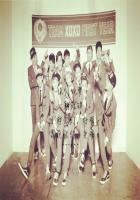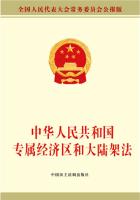He had not yet happened on Rudyard Kipling's "Mandalay," but he knew the poetry before he knew the poem, like millions of wanderers, who have perhaps alone felt the world exactly as it is. Nothing attracted him less than the idea of beginning a new education. The old one had been poor enough; any new one could only add to its faults. Life had been cut in halves, and the old half had passed away, education and all, leaving no stock to graft on.
The new world he faced in Paris and London seemed to him fantastic Willing to admit it real in the sense of having some kind of existence outside his own mind, he could not admit it reasonable. In Paris, his heart sank to mere pulp before the dismal ballets at the Grand Opera and the eternal vaudeville at the old Palais Royal; but, except for them, his own Paris of the Second Empire was as extinct as that of the first Napoleon. At the galleries and exhibitions, he was racked by the effort of art to be original, and when one day, after much reflection, John La Farge asked whether there might not still be room for something ****** in art, Adams shook his head.
As he saw the world, it was no longer ****** and could not express itself simply. It should express what it was; and this was something that neither Adams nor La Farge understood.
Under the first blast of this furnace-heat, the lights seemed fairly to go out. He felt nothing in common with the world as it promised to be.
He was ready to quit it, and the easiest path led back to the east; but he could not venture alone, and the rarest of animals is a companion. He must return to America to get one. Perhaps, while waiting, he might write more history, and on the chance as a last resource, he gave orders for copying everything he could reach in archives, but this was mere habit.
He went home as a horse goes back to his stable, because he knew nowhere else to go.
Home was Washington. As soon as Grant's administration ended, in 1877, and Evarts became Secretary of State, Adams went back there, partly to write history, but chiefly because his seven years of laborious banishment, in Boston, convinced him that, as far as he had a function in life, it was as stable-companion to statesmen, whether they liked it or not. At about the same time, old George Bancroft did the same thing, and presently John Hay came on to be Assistant Secretary of State for Mr. Evarts, and stayed there to write the "Life" of Lincoln. In 1884 Adams joined him in employing Richardson to build them adjoining houses on La Fayette Square.
As far as Adams had a home this was it. To the house on La Fayette Square he must turn, for he had no other status -- no position in the world.
Never did he make a decision more reluctantly than this of going back to his manger. His father and mother were dead. All his family led settled lives of their own. Except for two or three friends in Washington, who were themselves uncertain of stay, no one cared whether he came or went, and he cared least. There was nothing to care about. Every one was busy; nearly every one seemed contented. Since 1871 nothing had ruffled the surface of the American world, and even the progress of Europe in her side-way track to dis-Europeaning herself had ceased to be violent.
After a dreary January in Paris, at last when no excuse could be persuaded to offer itself for further delay, he crossed the channel and passed a week with his old friend, Milnes Gaskell, at Thornes, in Yorkshire, while the westerly gales raved a warning against going home. Yorkshire in January is not an island in the South Seas. It has few points of resemblance to Tahiti; not many to Fiji or Samoa; but, as so often before, it was a rest between past and future, and Adams was grateful for it.
At last, on February 3, he drove, after a fashion, down the Irish Channel, on board the Teutonic. He had not crossed the Atlantic for a dozen years, and had never seen an ocean steamer of the new type. He had seen nothing new of any sort, or much changed in France or England. The railways made quicker time, but were no more comfortable. The scale was the same. The Channel service was hardly improved since 1858, or so little as to make no impression. Europe seemed to have been stationary for twenty years.
To a man who had been stationary like Europe, the Teutonic was a marvel.
That he should be able to eat his dinner through a week of howling winter gales was a miracle. That he should have a deck stateroom, with fresh air, and read all night, if he chose, by electric light, was matter for more wonder than life had yet supplied, in its old forms. Wonder may be double -- even treble. Adams's wonder ran off into figures. As the Niagara was to the Teutonic -- as 1860 was to 1890 -- so the Teutonic and 1890 must be to the next term -- and then? Apparently the question concerned only America. Western Europe offered no such conundrum. There one might double scale and speed indefinitely without passing bounds.
Fate was kind on that voyage. Rudyard Kipling, on his wedding trip to America, thanks to the mediation of Henry James, dashed over the passenger his exuberant fountain of gaiety and wit -- as though playing a garden hose on a thirsty and faded begonia. Kipling could never know what peace of mind he gave, for he could hardly ever need it himself so much; and yet, in the full delight of his endless fun and variety; one felt the old conundrum repeat itself. Somehow, somewhere, Kipling and the American were not one, but two, and could not be glued together. The American felt that the defect, if defect it were, was in himself; he had felt it when he was with Swinburne, and, again, with Robert Louis Stevenson, even under the palms of Vailima; but he did not carry self-abasement to the point of thinking himself singular. Whatever the defect might be, it was American; it belonged to the type; it lived in the blood. Whatever the quality might be that held him apart, it was English; it lived also in the blood; one felt it little if at all, with Celts, and one yearned reciprocally among Fiji cannibals.















